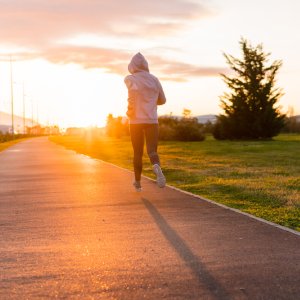Addiction and Loneliness

The drug addiction problem in our country continues to grow, and as it does, our efforts to understand it increase in tandem. There is new data, new research, and new conclusions that link opioid addiction to loneliness. I found this data fascinating, as addicts genuinely are some of the loneliest people in the world. But in my mind, the habit had always come first, and the loneliness came later.
But perhaps not.
The Washington Post featured Rachel Wurzman, a neuroscientist, who is making some real breakthroughs in better understanding a person’s motives behind their path to opioid addiction. A lot of what she had to say revolves around a physical brain component which may or may not be true. My think on that is this: when we try and stuff all of the intricacies and facets of addiction into one small package and say it “All has to do with the brain,” that’s like trying to say that the only thing that influences weather is wind patterns.
The truth is, addiction is so much more complicated than just an issue of the brain. It involves the spiritual, personal, and behavioral components attendant with it as well. So I don’t believe that we can use neuroscience to solve addiction completely.
However, it can help us in our quest.
New Findings Shed Light on Some of the Impulses Behind Opioid Misuse

Rachel Wurzman does a lot of research on the region of the striatum. The striatum is the section of the brain which influences decision-making. Wurzman has theorized that, when a human being experiences isolation for long periods, the striatum moves into a hypersensitive state. In this state, the individual might be more likely to chase a quick reward, especially as the striatum translates social isolation to physical and mental pain. Such made sense to me, more or less.
Let’s not forget that humans are inherently social. When a human is in isolation for extended periods, it would make sense that such a circumstance could cause adverse reactions within the brain as the mind would perceive such situations as unnatural.
“If we don’t have the ability to connect socially, we are so ravenous … we’re likely to seek relief from anywhere. And if that anywhere is opioid painkillers or heroin, it is going to be a heat-seeking missile for our social reward system.”
In a direct quote from Wurzman, “If we don’t have the ability to connect socially, we are so ravenous … we’re likely to seek relief from anywhere. And if that anywhere is opioid painkillers or heroin, it is going to be a heat-seeking missile for our social reward system.”
The Washington Post article covers Rachel Wurzman’s research pretty well, but her full, 18-minute presentation on addiction and loneliness was recorded and can be viewed on TEDxMidAtlantic.
And here’s where this research gets really interesting. Just as social isolation could be damaging to people, the reverse could be a boon. When people interact in social engagement, they have a better chance of smoothing out their neural pathways and calming their minds, The Washington Post article talks about how, “Isolation is just one of the many factors that play into addiction—but it’s a problem worth tackling.” So we know that isolation, loneliness, and the brain are not the only factors here. But since they are factors, why not address them?
Beating Loneliness – Engage in Social Activities With Those Who Support Recovery

So let’s beat loneliness. Let’s recognize that loneliness does play a part in not only the inception of an addictive habit but also in the continuation of that habit. And let’s acknowledge that addiction could be in some ways remedied by the reversal of loneliness.
One of the principal factors of anyone’s quest to sobriety is that someone who is working on their recovery should get around like-minded, sober people. We’ve seen this phenomenon of community and “group healing” you could call it, manifest in addiction treatment for centuries.
When engaging in recovery, one should surround oneself with like-minded people who are also working to overcome drug and alcohol addiction. One should participate in positive, healthy, pleasant social activities that are amicable to them. Part of these could be support groups and ongoing interaction with one’s treatment center, etc.
Maintain a Proper Diet
There is a “double-whammy” you could say, in beating loneliness. Not only should recovering addicts engage in social activities, but they should engage in social activities that are already conducive to recovery. In doing so, the person hits two birds with one stone. Not only is he getting social interaction, but he’s doing so in an environment that will aid his recovery.
One such approach could be with a cooking or a healthy eating group. We live in a “foodie” culture as it is, so groups like these are easy enough to find. And since maintaining a proper diet is a valuable part of the recovery process, finding groups and social engagements that have healthy eating and cooking as their primary focus can be very helpful for a recovering addict.
Exercise Frequently
Another type of group that a recovering addict should consider is an exercise group, a class, a training club, or something of that order. Getting daily exercise is crucial to recovery, and what better way to get one’s exercise than with a group of like-minded people?
Many recovering addicts turn to exercise and physical betterment as a pathway to recovery. There are even exercise programs, gym groups, and workout classes that are specially tailored for those in recovery. Engaging in such groups is not only conducive for social interaction, but it also gives a person the opportunity to exercise. This gives the body and mind a chance to heal.
Putting it All Together
The truth is, many components go together in the addiction recovery spectrum. Getting off of drugs and alcohol is a multifaceted ordeal, a process, and a journey that has addiction treatment at a qualified center as just the first step in this process. There is so much more at hand here. Let’s take Rachel Wurzman’s research and, without getting too focused in on the brain chemistry of it all, let’s apply her theories on loneliness and the brain to stay unlonely while in recovery!
Sources:
- https://www.washingtonpost.com/
- https://www.ted.com/talks/rachel_wurzman_how_isolation_fuels_opioid_addiction/up-next
Reviewed and edited by Claire Pinelli ICAADC, CCS, LADC, MCAP, RAS


